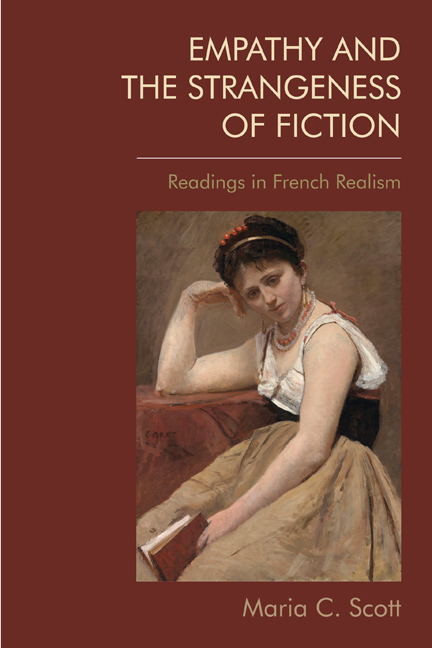Book contents
- Frontmatter
- Contents
- Dedication
- 1 Does Reading Fiction Boost Empathy? Psychological Approaches
- 2 Literary Approaches to Empathy
- 3 Fictional Strangers and the Strangeness of Fiction
- 4 Balzac: The Limits of Transparency and the Dangers of Opacity
- 5 Stendhal and the Two Opposing Demands
- 6 Sand and the Necessity of Suspicion
- 7 Towards an Empathetic Ethics of Fiction-Reading
- Bibliography
- Index
3 - Fictional Strangers and the Strangeness of Fiction
Published online by Cambridge University Press: 17 October 2020
- Frontmatter
- Contents
- Dedication
- 1 Does Reading Fiction Boost Empathy? Psychological Approaches
- 2 Literary Approaches to Empathy
- 3 Fictional Strangers and the Strangeness of Fiction
- 4 Balzac: The Limits of Transparency and the Dangers of Opacity
- 5 Stendhal and the Two Opposing Demands
- 6 Sand and the Necessity of Suspicion
- 7 Towards an Empathetic Ethics of Fiction-Reading
- Bibliography
- Index
Summary
What Have Strangers Got to Do with Fiction?
What is a stranger, and on what basis might a fictional stranger be understood as a figure of narrative fiction?
For the sociologist and philosopher Georg Simmel, the stranger is somebody who has come from outside the group: he brings qualities into a group ‘that are not, and cannot be, indigenous to it’. The OED defines the stranger along these lines: he is a ‘a foreigner; an alien’, ‘a newcomer’ or an ‘unknown person’. The French word for stranger, ‘l’étranger’, doubles up to mean ‘foreigner’, and therefore conveys more strongly than in English the sense that the stranger is an outsider from the perspective of a particular group. In the modern world, however, where individuals can belong to numerous groups, often in an ephemeral or virtual way, most of us define strangers simply as people we don’t (yet) know, rather than as outsiders: most of the people that many of us see every day are strangers in this banal sense. As the social scientist Margaret Wood put it in 1934, ‘everyone outside of the city-dweller’s own relatively small circle of friends and acquaintances is a stranger to him’, so that ‘there is no distinction as between the group and the stranger or between host and guest’. Anyone who is not an acquaintance of mine is therefore a stranger to me. However, in certain situations we can become keenly aware of other people as strangers in a stronger sense. For example, the friendly man at the cash register in the supermarket does not become a fully fledged stranger, to my mind, until he asks me a question that I find inappropriately personal (‘Will you be sharing that chocolate cake with anyone special?’). The woman standing behind me in the post office queue is simply somebody I don't know, until she asks if she can try on my watch to see how it looks on her wrist. People I don't know have suddenly become people that I am aware I don't know: unless I am a very trusting individual, I am likely to consider their possible motivations before deciding how to respond to them. Could they have a hidden agenda?
- Type
- Chapter
- Information
- Empathy and the Strangeness of FictionReadings in French Realism, pp. 42 - 64Publisher: Edinburgh University PressPrint publication year: 2020



